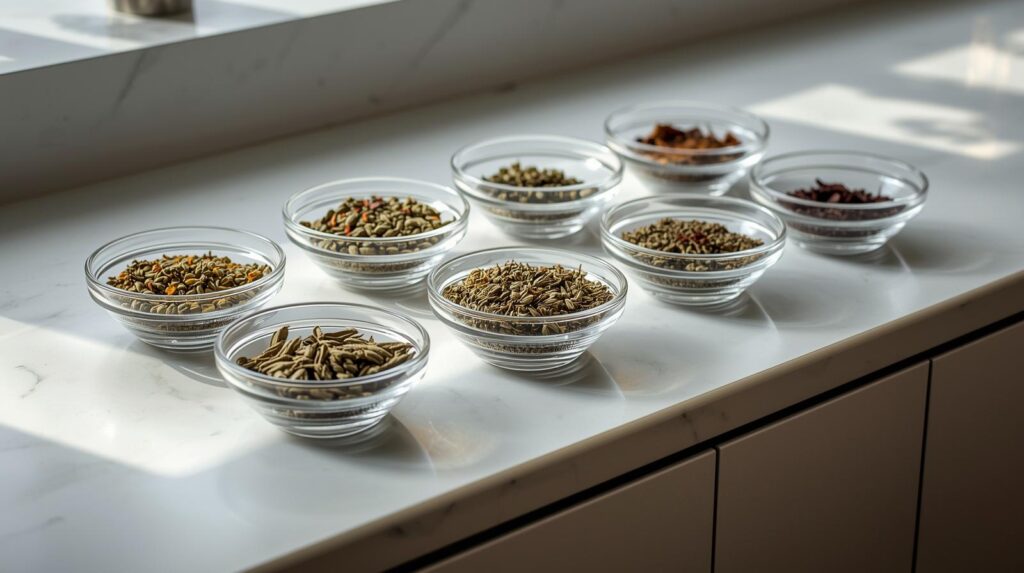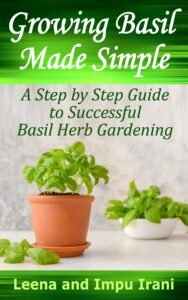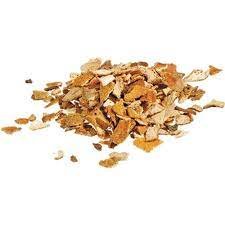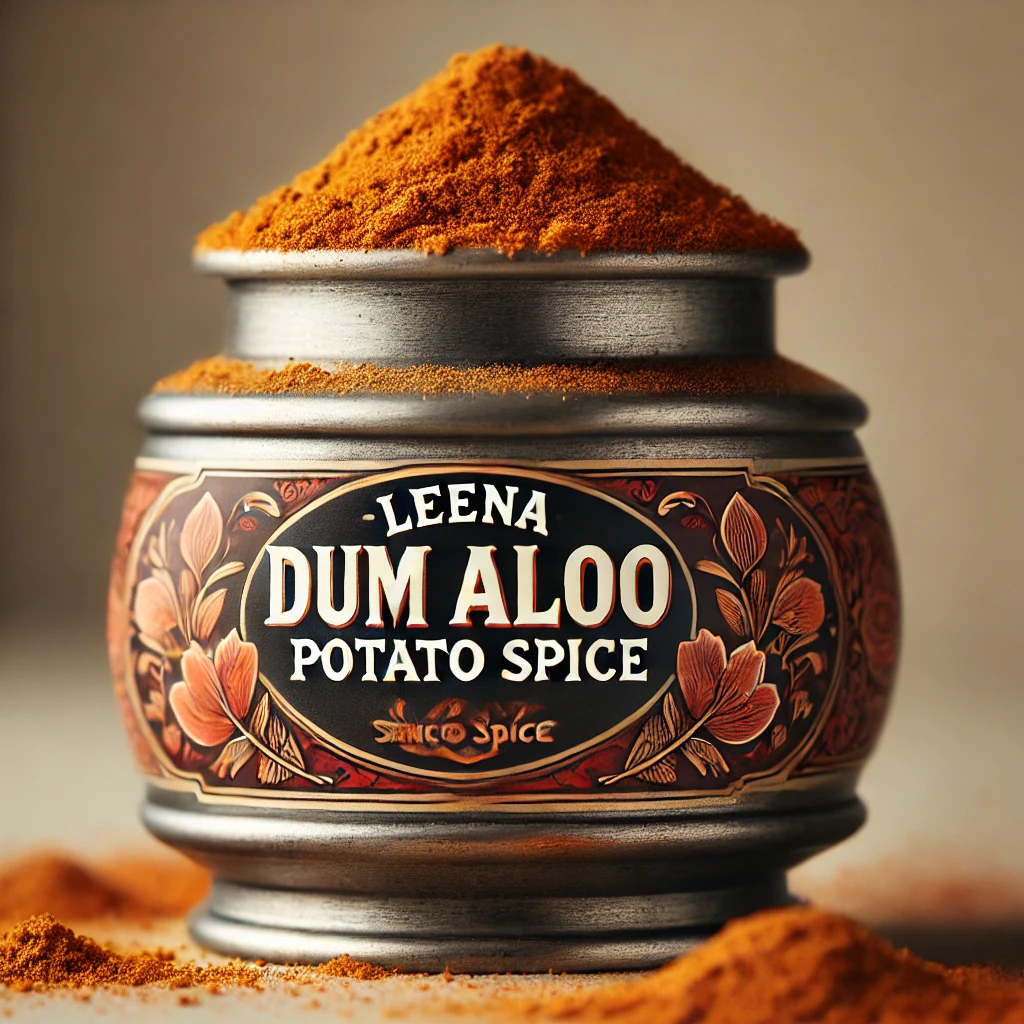Top 7 Postpartum Herbs to Boost Milk Supply the Natural Way
Table of Contents
- Key Takeaways: Postpartum Herbs
- Introduction
- Goat’s Rue: Supporting Low Milk Supply and Hormonal Balance
- Moringa: Nutrient-Dense Recovery and Milk Support
- Motherwort: Uterine Recovery and Emotional Calm
- Nettle: Iron-Rich Nourishment and Milk Production
- Raspberry Leaf: Uterine Toning and Nutrient Support
- Shatavari: Adaptogen for Lactation, Hormones, and Immunity
- Yarrow: Healing, Circulation, and Postpartum Comfort
- FAQs
- Conclusion
Introduction
Continuing our guide on herbs that support mothers after childbirth, Part 2 explores powerful plants that enhance lactation, uterine recovery, emotional well-being, and postpartum healing. While Part 1 focused on herbs like Fenugreek and Chamomile, this section introduces nutrient-dense, galactagogue, and restorative herbs such as Goat’s Rue, Moringa, Shatavari, Motherwort, Nettle, Raspberry Leaf, and Yarrow. Whether you’re looking to increase milk supply naturally, reduce postpartum cramps, boost immunity, or restore energy, these herbs have long-standing traditional and modern uses that can help new mothers navigate the challenging early weeks with greater ease, health, and confidence.
Key Takeaways: Postpartum Herbs
Which herbs are most effective for boosting breast milk supply?
Goat’s Rue, Moringa, Shatavari, Nettle, and Fenugreek (covered in Part 1) are known galactagogues that may help increase milk production naturally.
How can I support uterine recovery after childbirth?
Raspberry Leaf, Motherwort, and Yarrow help tone the uterus, reduce postpartum bleeding, and support healing of uterine tissue.
Which herbs help with postpartum emotional well-being and stress?
Motherwort, Shatavari, and Yarrow provide calming, adaptogenic, or nervine properties to reduce anxiety, mood swings, and stress.
Are there herbs that provide nutritional support for postpartum mothers?
Moringa, Nettle, and Shatavari are rich in vitamins, minerals, and antioxidants, helping restore energy, support immunity, and aid overall recovery.
Can these herbs help with postpartum discomfort like cramping, swelling, or digestive issues?
A5: Yarrow, Motherwort, and Moringa can reduce inflammation, ease uterine cramps, improve digestion, and support overall postpartum healing.
Are these herbs safe for breastfeeding mothers?
A6: Most are generally safe in moderation, but always consult a healthcare provider, especially if taking medications, having allergies, or experiencing health conditions.

This blog is for general reading. It is important to always consult with your Lead Maternity Carer (LMC), doctor, pharmacist, or a qualified medical herbalist before taking any herbal remedies, especially during the postpartum period and while breastfeeding. They can provide advice specific to your health and your baby’s needs.
Goat’s Rue (Galega officinalis)
Goat’s Rue is a traditional herb widely recognized for its lactation-enhancing properties. It has a long history of use among breastfeeding mothers, particularly those with low milk supply or insufficient glandular tissue. Often recommended by lactation consultants, Goat’s Rue can be a valuable addition to postpartum care.
Key Benefits for Postpartum Mothers
- Boosts Milk Supply
Goat’s Rue is considered a potent galactagogue.
- It stimulates the growth of mammary tissue and promotes prolactin secretion, the hormone essential for milk production.
- Particularly beneficial for mothers with low supply, insufficient glandular tissue, or post-breast surgery.
- Often used alongside other lactation herbs such as fenugreek or blessed thistle for enhanced effects.
- Hormonal Support
By helping regulate certain hormones, Goat’s Rue may contribute to mood stability and postpartum recovery, supporting the body’s natural adjustment after childbirth. - Digestive and Nutritional Support
- Mildly supports digestion, helping reduce postpartum bloating or discomfort.
- Contains flavonoids and alkaloids, which provide energy and overall nutritional support during recovery.
- Blood Sugar and Metabolic Support
Goat’s Rue may help balance blood sugar levels, supporting maternal health postpartum and potentially aiding healthy postpartum weight management.
Common Uses
- Tea – steeped from dried herb for daily consumption.
- Capsules or extracts – standardized doses are available for consistent intake.
- Combination blends – often used with other galactagogues like fenugreek and blessed thistle for synergistic lactation support.
Safety Considerations
- General Safety – Generally considered safe in moderation for postpartum mothers.
- Breastfeeding – Limited data exists on its safety during lactation; consult a healthcare provider before use.
- Blood Sugar – Can lower blood sugar levels; avoid if you have hypoglycemia or take diabetes medications.
- Individual Response – Effects on milk supply may vary; some mothers notice significant improvement, while others may experience milder results.
In summary: Goat’s Rue is a well-established herb for supporting lactation and postpartum recovery. With potential benefits in milk production, hormonal balance, digestion, and metabolic health, it is a trusted option for nursing mothers—but professional guidance is recommended, especially during breastfeeding or if you have blood sugar concerns.
Moringa (Moringa oleifera)
Key Benefits for Postpartum Mothers
- Boosts Milk Supply Moringa is a natural galactagogue, helping to increase breast milk production.
- Studies, especially among mothers of preterm infants, suggest Moringa supplementation can significantly increase milk volume.
- Its bioactive compounds, such as phytosterols and phytoestrogens, may stimulate prolactin, the hormone responsible for milk production.
- Traditionally used in Asia and Africa (known as malunggay in the Philippines), Moringa has long been incorporated into lactation diets.
- Nutritional Support and Recovery Childbirth often depletes a mother’s nutrient reserves. Moringa provides essential vitamins, minerals, and protein to replenish these losses:
- Iron: Helps combat postpartum anemia and fatigue, with Vitamin C in Moringa enhancing absorption.
- Calcium: Supports maternal bone health and meets the high calcium demands of breastfeeding.
- Protein: Contains all nine essential amino acids, vital for tissue repair and sustained energy.
- Vitamins: Rich in A, B, C, E, and K, supporting energy, immunity, and overall wellness.
- Anti-Inflammatory and Immune Support Moringa contains isothiocyanates, flavonoids, and phenolic acids, which provide anti-inflammatory and antioxidant benefits:
- Reduces postpartum swelling and inflammation.
- Supports immune function, helping protect the mother from infections during the vulnerable postpartum period.
- Energy and Vitality
- By replenishing iron and providing B vitamins and protein, Moringa helps combat postpartum fatigue, improving overall energy levels.
- Supports healthy infant weight gain indirectly through improved milk supply and nutrient-rich breast milk.
- Additional Benefits
- Postpartum Hair Health: Nutrients like zinc, iron, and vitamins C and E may help address postpartum hair loss.
- Hormonal Balance: May help stabilize hormones, easing mood swings and emotional fluctuations.
- Traditional Use: In Ayurveda, Moringa is believed to balance vata energy and support digestion and overall postpartum wellness.
Common Uses
- Tea: Moringa leaves steeped in hot water for daily consumption.
- Powder: Added to smoothies, soups, or other foods for nutrient enrichment.
- Capsules or Supplements: Standardized doses are available for convenience.
Safety Considerations
- General Safety: Generally safe in moderation for postpartum mothers.
- Breastfeeding: Limited data exist on its effects during lactation; consult a healthcare provider for guidance.
- Digestive Effects: May cause mild digestive upset in some individuals.
- Individual Response: Effects on milk supply and energy levels can vary between mothers.
Motherwort (Leonurus cardiaca)
Motherwort, often called the “mother’s herb,” has a long history of use in Traditional European and Chinese herbal medicine for supporting mothers after childbirth. It is particularly valued for its dual role in uterine recovery and nervous system support, helping mothers regain physical and emotional balance during the postpartum period.
Key Benefits for Postpartum Mothers
- Uterine and Physical Recovery
Motherwort is considered a uterine tonic and antispasmodic, supporting the uterus as it returns to pre-pregnancy size (involution).
- Relieves Afterbirth Pains: Its antispasmodic properties can ease uterine cramps and painful contractions following delivery.
- Supports Postpartum Bleeding: Traditionally used to promote healthy blood flow and reduce the risk of retained blood clots. Some clinical studies suggest motherwort injections (used with oxytocin) may modestly reduce postpartum bleeding, though evidence quality is low.
- Uterine Tone: Helps maintain healthy uterine contraction and supports long-term uterine health.
- Regulates Menstruation: May assist in balancing hormones and supporting the return of a normal menstrual cycle postpartum.
- Emotional and Nervous System Support
Motherwort is a nervine and cardiotonic, helping to calm the mind and regulate stress responses.
- Reduces Anxiety and Stress: Acts as a gentle sedative to alleviate postpartum anxiety, nervous tension, and emotional overwhelm.
- Balances Mood Swings: Supports emotional stability during “baby blues” or early postpartum mood fluctuations.
- Supports Heart Health: Traditionally used to calm palpitations or racing heart associated with postpartum stress.
- Improves Sleep: Mild sedative effects can aid restful sleep, which is essential for recovery.
- Additional Supportive Benefits
- Digestive Health: May improve digestion and relieve mild constipation caused by stress or tension.
- Antioxidant Support: Contributes to overall healing and tissue recovery after childbirth.
Common Uses
- Tea: Steep dried motherwort leaves in hot water to support uterine and emotional recovery.
- Tincture or Elixir: Alcohol-based or glycerin-based extracts for concentrated use.
- Capsules or Supplements: Standardized doses are available under guidance from a qualified healthcare provider.
Safety Considerations
- Pregnancy: Avoid during pregnancy, as motherwort is a uterine stimulant and may induce contractions.
- Bleeding: Use cautiously if prone to heavy postpartum bleeding or taking blood thinners.
- Breastfeeding: Limited research exists on its safety while nursing; consult a healthcare provider.
- Medication Interactions: May interact with heart medications, anticoagulants, or sedatives.
- Side Effects: Mild digestive upset or drowsiness can occur in some individuals.
Summary:
Motherwort is a traditional postpartum herb that supports both physical recovery and emotional well-being. It helps tone the uterus, reduce afterbirth pains, stabilize mood, calm anxiety, and promote better sleep, making it a valued ally for mothers navigating the early postpartum period.
Related Posts You May Like
Top 8 Herbs for Postpartum Recovery: Natural Lactation & Healing Support for New Moms
Nettle (Urtica dioica)
Nettle is a nutrient-dense herb widely used in traditional postpartum care for its ability to support lactation, recovery, and overall health. Rich in vitamins, minerals, and antioxidants, it helps mothers replenish essential nutrients lost during childbirth while supporting milk production and postpartum healing.
Key Benefits for Postpartum Mothers
- Lactation Support
- Boosts Milk Supply: Acts as a mild galactagogue, stimulating milk production and supporting a healthy, adequate milk supply for breastfeeding mothers.
- Nutritional Support and Energy Restoration
- Rich in Nutrients: Contains vitamins A, B-complex, C, K, and minerals such as iron, calcium, and magnesium, which are crucial for postpartum recovery.
- Combats Fatigue and Anemia: High iron content helps prevent or address postpartum anemia and boosts energy levels.
- Supports Bone and Blood Health: Calcium and vitamin K aid in bone strength and blood clotting, promoting overall recovery.
- Postpartum Healing and Recovery
- Mild Astringent: Helps reduce postpartum bleeding and promotes tissue healing.
- Anti-Inflammatory Effects: Reduces swelling and eases discomfort, supporting recovery from childbirth.
- Diuretic Properties: Mildly increases urine output to reduce water retention and bloating.
- Additional Supportive Benefits
- Adrenal Support: Strengthens the adrenal glands, enhancing natural energy without relying on caffeine.
- Hair Health: Nutrient richness may support healthy hair growth and help reduce postpartum hair loss.
- Digestive Support: Helps ease mild digestive discomfort and supports gut function.
Common Uses
- Tea: Dried nettle leaf infusions are a popular choice for postpartum nourishment and lactation support.
- Capsules or Supplements: Standardized doses are available for convenience, often combined with other postpartum herbs.
- Culinary Use: Fresh or cooked nettle leaves can be added to soups, stews, or smoothies for nutritional benefit.
Safety Considerations
- General Safety: Nettle is generally safe in moderate amounts.
- Possible Side Effects: May cause mild digestive upset or allergic reactions (rare).
- Diuretic Caution: Excessive use can lead to dehydration or electrolyte imbalance.
- Breastfeeding: Consult a healthcare provider before use to ensure safety for both mother and baby.
Raspberry Leaf (Rubus idaeus)
Key Benefits for Postpartum Mothers
- Uterine Health and Recovery
- Tones the Uterus: Contains compounds like fragarine that help strengthen uterine muscles, supporting involution (the process of the uterus returning to pre-pregnancy size).
- Reduces Postpartum Bleeding and Cramping: By aiding uterine contractions, raspberry leaf may help minimize excessive bleeding and ease afterbirth cramps.
- Supports Tissue Healing: Nutrients and antioxidants in the leaves assist in repairing tissues after childbirth.
- Nutritional Support
- Rich in Vitamins and Minerals: Provides iron, calcium, magnesium, and vitamins C and E, which help replenish nutrients lost during pregnancy and delivery.
- Energy Restoration: Supports recovery from fatigue and replenishes blood stores after blood loss.
- Digestive Health: Offers mild digestive support and gentle diuretic effects to help reduce bloating and support gut health.
- Breastfeeding Support
- Mild Galactagogue: May indirectly support milk production by improving overall maternal health, though evidence is primarily anecdotal.
- Nutritional Contribution: Nutrient-rich leaves may help mothers maintain adequate nutrition while breastfeeding.
- Emotional and Hormonal Support
- Calming and Nurturing: Drinking raspberry leaf tea can provide a comforting postpartum ritual, supporting emotional well-being.
- Hormonal Balance: May aid in stabilizing postpartum hormones, contributing to mood regulation.
Common Uses
- Tea: The most common and traditional method for postpartum use. Steep 1–2 teaspoons of dried leaves in hot water for 5–10 minutes, up to 1–3 cups daily.
- Topical Use: Though less common, infused oils or compresses may support skin healing or inflammation.
- Supplements: Capsules are available, but caution is advised due to limited safety data during breastfeeding.
Safety Considerations
- General Safety: Generally safe in moderation when consumed as tea.
- Possible Side Effects: May cause mild digestive upset in sensitive individuals.
- Breastfeeding: Considered safe for nursing mothers, but always consult a healthcare provider before use.
- Precautions: Avoid high-dose supplements during breastfeeding or if you have uterine conditions.
Shatavari (Asparagus racemosus)
Shatavari, often called the “Queen of Herbs” in Ayurveda, is highly revered for its role in supporting women during the postpartum period. It is valued for its galactagogue effects, hormonal balance, uterine recovery, and rejuvenating properties, making it a cornerstone of postpartum care.
Key Benefits for Postpartum Mothers
- Lactation Support (Galactagogue)
- Boosts Milk Production: Shatavari naturally supports prolactin secretion, helping increase breast milk supply.
- Enhances Milk Quality: Traditional use suggests it may improve the nutritional content of breast milk, supporting infant nourishment.
- Uterine Recovery and Physical Rejuvenation
- Uterine Toning: Supports the uterus in returning to its pre-pregnancy size, aiding involution and reducing postpartum bleeding.
- Anti-Inflammatory Effects: Helps reduce uterine inflammation and swelling after childbirth.
- Energy and Strength Restoration: Rich in antioxidants, vitamins, and minerals, Shatavari replenishes energy, combats fatigue, and aids tissue repair.
- Digestive Support: Soothes common postpartum digestive issues like bloating, acidity, and constipation.
- Hormonal and Emotional Balance
- Balances Hormones: Contains phytoestrogens that gently stabilize postpartum hormonal fluctuations.
- Calms and Adapts to Stress: Acts as an adaptogen, helping reduce anxiety, mood swings, and emotional fluctuations during the “baby blues.”
- Sleep Support: Its calming properties may improve sleep quality, aiding overall recovery.
- Immune Support
- Strengthens Immunity: The antioxidants in Shatavari help protect the mother from postpartum infections and support overall recovery.
Common Methods of Consumption
- Powder (Churna): Mixed with warm milk and sometimes sweetened with honey or jaggery.
- Capsules or Tablets: Convenient for mothers who prefer supplements.
- Teas or Tonics: Can be incorporated into herbal postpartum blends or traditional Ayurvedic tonics.
- Postpartum Foods: Often included in laddoos or other nourishing foods to aid recovery.
Safety Considerations
- General Safety: Generally considered safe in moderation for postpartum use and lactation.
- Possible Side Effects: Rare digestive upset or mild allergic reactions.
- Breastfeeding: Traditionally safe for lactating mothers, but it is recommended to consult a healthcare provider before starting, especially if you have estrogen-sensitive conditions or other health concerns.
- Dosage: Should be guided by a healthcare professional or qualified Ayurvedic practitioner to ensure appropriate postpartum use.
Yarrow (Achillea millefolium)
Yarrow is a traditional herbal ally for postpartum mothers, valued for its uterine, wound-healing, and anti-inflammatory properties. It is often used both internally and topically to support recovery after childbirth, aiding physical healing and emotional well-being.
Key Benefits for Postpartum Mothers
- Uterine Health
- Tones the Uterus: Supports uterine contraction, helping the uterus return to its pre-pregnancy size (involution).
- Reduces Postpartum Bleeding: Its astringent properties help minimize excessive bleeding and may prevent hemorrhage.
- Relieves Cramping: Acts as an antispasmodic, easing uterine cramps and afterbirth pains.
- Wound Healing and Tissue Repair
- Perineal and Surgical Recovery: Its anti-inflammatory and antimicrobial properties aid healing of perineal tears, episiotomies, c-section incisions, or hemorrhoids.
- Speeds Tissue Regeneration: Enhances recovery of pelvic and perineal tissues, reducing discomfort and promoting faster healing.
- Circulation and Anti-Inflammatory Support
- Improves Blood Flow: Enhances circulation to the pelvic area, supporting oxygenation and nourishment of healing tissues.
- Reduces Swelling: Provides mild anti-inflammatory effects, alleviating postpartum swelling and discomfort.
- Digestive and Emotional Support
- Digestive Health: May ease mild postpartum digestive issues such as bloating.
- Calms Anxiety: Traditionally used to reduce nervous tension and support emotional well-being.
Common Methods of Use
- Tea: 1–2 cups daily for general postpartum support.
- Tincture: 10–15 drops daily, as directed by a healthcare provider.
- Topical Applications: Sitz baths, compresses, or salves for perineal or surgical healing.
Safety Considerations
- General Safety: Generally safe in moderation.
- Possible Side Effects: May cause mild stomach upset or allergic reactions, especially in those sensitive to the Asteraceae family.
- Caution: Avoid in large amounts or with bleeding disorders.
- Breastfeeding: Consult a healthcare provider before use to ensure safety while nursing.
Summary:
Yarrow is a versatile postpartum herb that supports uterine recovery, reduces bleeding, promotes tissue healing, improves circulation, and provides calming effects. Used both internally and topically, it helps new mothers recover physically and emotionally while supporting smooth postpartum healing.
It is important to always consult with your Lead Maternity Carer (LMC), doctor, pharmacist, or a qualified medical herbalist before taking any herbal remedies, especially during the postpartum period and while breastfeeding. They can provide advice specific to your health and your baby’s needs.
If You Enjoyed Reading This Articles, Join Our Facebook Page
FAQs: Postpartum Herbs for New Mothers
Can I use these herbs while breastfeeding?
Most of the herbs mentioned—like Fenugreek, Moringa, Shatavari, and Nettle—are generally considered safe in moderation for breastfeeding mothers. However, it’s always best to consult a healthcare provider before starting any herbal supplement to ensure safety for both you and your baby.
How soon after childbirth can I start using these herbs?
Many herbs can be introduced immediately postpartum, but timing may vary depending on the herb and your health condition. For example, galactagogues like Fenugreek and Goat’s Rue are often used in the first days to weeks postpartum to support milk supply. Always follow professional guidance.
Are there any side effects of these herbs?
While generally safe in recommended amounts, some herbs can cause mild digestive upset, drowsiness, or allergic reactions. Herbs like Fenugreek may cause a maple-syrup smell in urine or sweat. Always monitor your body and your baby if breastfeeding.
Can these herbs replace medical care after childbirth?
No. While these herbs support postpartum recovery, they are complementary and should not replace medical treatment for complications such as severe bleeding, infections, or postpartum depression.
How should I consume these herbs?
Most postpartum herbs can be consumed as teas, capsules, powders, tinctures, or added to foods. Topical use is common for healing perineal or nipple soreness (e.g., Chamomile or Yarrow). Always ensure the method and dosage are safe, especially while breastfeeding.
Can these herbs increase milk supply immediately?
Some herbs like Fenugreek, Goat’s Rue, and Moringa may show effects within a few days to a week, but results vary by individual. Milk supply is also influenced by breastfeeding frequency, hydration, and overall maternal health.
Can herbs help with postpartum hair loss and fatigue?
Yes. Nutrient-rich herbs like Nettle, Moringa, and Shatavari provide vitamins, minerals, and antioxidants that support hair health, energy restoration, and overall recovery.
Are there herbs I should avoid postpartum?
Yes. Herbs that strongly stimulate the uterus or affect blood clotting may be unsafe immediately postpartum or while breastfeeding. Always check with a healthcare provider before introducing any new herbal supplement.
Can I combine multiple herbs for postpartum support?
Many herbalists recommend combining complementary herbs (e.g., Fenugreek with Goat’s Rue or Shatavari with Moringa) to enhance lactation and recovery. However, it’s crucial to ensure there are no interactions and that total intake is safe.
How long should I use postpartum herbs?
Duration depends on your goals—lactation support, uterine recovery, or nutrient supplementation. Some mothers use them for a few weeks, while others may continue for months. Always monitor your body’s response and consult a professional if unsure.
Are these herbs safe for c-section recovery?
Many herbs like Yarrow, Chamomile, and Motherwort can support wound healing, inflammation reduction, and uterine recovery after a c-section, but topical or internal use should follow professional advice, especially in the presence of complications.
Conclusion
Incorporating postpartum herbs like Fenugreek, Goat’s Rue, Moringa, Shatavari, Motherwort, Nettle, Raspberry Leaf, and Yarrow can provide incredible support for new mothers. From boosting milk supply and enhancing uterine recovery to easing stress, improving digestion, and replenishing essential nutrients, these natural remedies play a vital role in postpartum wellness. While many herbs offer traditional and evidence-based benefits, every mother’s body responds differently. Always consult a qualified healthcare provider, midwife, or lactation consultant before starting any herbal supplement to ensure safety for both you and your baby. Prioritizing professional guidance ensures you harness the full benefits of these postpartum herbs while keeping your health and your baby’s health a top priority.


















